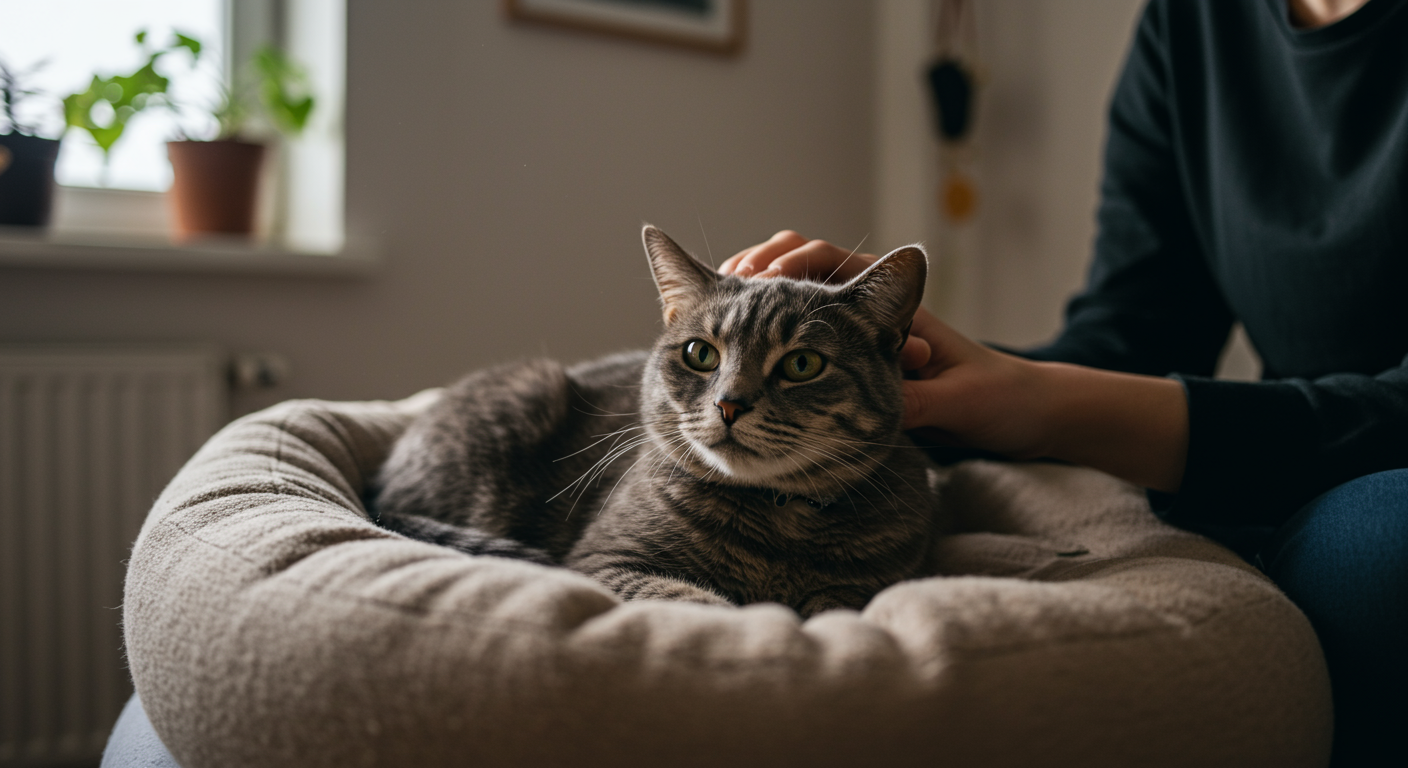As experienced cat parents, you've likely encountered a range of feline behaviors, from playful pounces to occasional aloofness. But what about the subtle signs of anxiety? Recognizing and addressing cat anxiety is crucial for your cat's overall health and happiness. This guide delves into the complexities of feline stress, offering insights and strategies to create a more serene environment for your cherished companion.

Deep Dive into Cat Anxiety for Advanced Pet Parents
Cat anxiety can manifest in various ways, often going unnoticed. Changes in routine, new pets or family members, environmental stressors, or underlying health issues can trigger it. Experienced cat parents are well-equipped to identify these triggers and implement solutions.
Common causes include:
- Changes in environment: Moving to a new home, remodeling, or even rearranging furniture can upset a cat's sense of security.
- Social stressors: Introduction of a new pet, loss of a family member (human or animal), or conflicts with other cats in the household.
- Health concerns: Pain, illness, or cognitive decline can contribute to anxiety. Always consult your veterinarian to rule out any underlying medical issues.
Advanced Strategies and Insights
Beyond basic care, advanced strategies can significantly improve a cat's well-being:
- Environmental Enrichment: Provide a stimulating environment with vertical space (cat trees), puzzle toys, and regular playtime. Rotate toys to keep your cat engaged.
- Behavioral Modification: Identify and address specific triggers. If your cat is anxious about loud noises, create a safe space where they can retreat during storms or fireworks.
- Feliway Diffuser: Consider using Feliway to help reduce stress and anxiety. Feliway mimics the natural feline facial pheromones, creating a sense of security and calm.
Optimizing Your Pet's Health & Behavior
- Create Safe Spaces: Ensure your cat has access to quiet, secure areas where they feel safe, such as a cat bed, a cozy corner, or a high perch.
- Establish Routines: Cats thrive on routine. Consistent feeding times, playtime, and grooming sessions can reduce anxiety by providing predictability.
- Observe Body Language: Learn to interpret your cat's body language. Dilated pupils, flattened ears, a tucked tail, or excessive grooming can indicate stress.
Case Study: Achieving Calmness
Consider the case of Mittens, a senior cat experiencing anxiety due to a recent move. Through environmental enrichment, a consistent routine, and the use of a Feliway diffuser, her owners were able to significantly reduce her anxiety. By providing a safe space, interactive play, and plenty of attention, Mittens regained her confidence and became a happy, relaxed cat.
Navigating Complex Pet Challenges
Dealing with cat anxiety can be challenging, but it's manageable with the right approach. Key steps include:
- Veterinary Consultation: Always consult your vet to rule out any underlying medical conditions contributing to the anxiety.
- Identify Triggers: Observe your cat's behavior to pinpoint the source of their stress.
- Gradual Introduction: Introduce changes gradually, such as new pets or family members, to minimize stress.
Integrating Advanced Care Practices
To further enhance your cat's well-being, consider these practices:
- Interactive Play: Dedicate time each day for interactive play sessions using toys like wand toys or laser pointers (use with caution).
- Positive Reinforcement: Reward calm behavior with treats and praise.
- Grooming Rituals: Regular grooming can be a bonding experience and help reduce stress.
Long-Term Wellness & Longevity Tips
Preventing anxiety is as important as treating it. Focus on:
- Regular Vet Check-ups: Ensure your cat receives annual check-ups to catch potential health issues early.
- Balanced Diet: Provide a high-quality diet to support overall health and well-being.
- Mental Stimulation: Keep your cat mentally engaged with puzzle toys and interactive games.
Expert-Level Pet Care Insights
As an experienced cat parent, you possess a wealth of knowledge and insight. By understanding the causes, symptoms, and solutions for cat anxiety, you can significantly improve your feline companion's quality of life. Remember to remain patient, observant, and adaptable to your cat's individual needs.